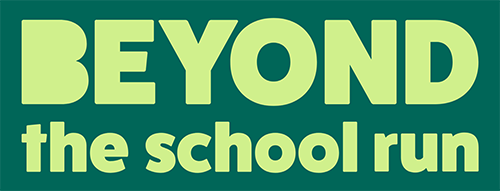Tips and advice on mindful techniques for kids during lockdown
Tip 1: Breathing exercise
Here are some tips and advice from Dr Megan Jones Bell, Chief Science Officer at Headspace, on some mindful activities and techniques parents can do with their children to keep them occupied while they are at home, and to help ease their stress and manage difficult emotions in this challenging time.
Parents and children can practice breathing exercises together to help calm their anxious thoughts and relieve overwhelming feelings.
Breath can be used as a tool to reset your mind and physiology. The simple act of focusing on your breathing can help you to unwind, reset and step away from the worried mind.
Parents and children can do a simple 10-minute breathing exercise together. Start by encouraging your children to join you in taking deep, full breaths and exhaling slowly out of your mouth. Focus on counting your inhalations and exhalations as that can help you transition from faster breathing to slower even breaths, which promote relaxation, counting aloud after each breath. Observe the rising and falling sensation that it creates in your bodies.
It’s completely normal if your minds wander. Notice these thoughts, but then let them go, bringing your attention back to your breath. Be sure to let your kids know that, too.
Once you’ve finished, encourage your children to congratulate themselves, and ask them how the process made them feel. The Headspace for Kids section offers simple, fun breathing exercises for children, allowing them to stay calm, rest and relax.
The morning can also be a great time to practice breathing exercises with your children as it can help set the day up on a positive note and clear your minds for the day ahead.
Tip 2: Mindful games
It can be hard to think of ways to keep children preoccupied when they are at home at all times, and can get restless, agitated and bored.
One way to occupy their time during the day, and help children feel calmer and more relaxed, is to play games that involved taking in the surroundings through the senses, to counteract our body’s fight or flight mechanism. This can help them bring theirattention back to the present moment and feel grounded.
Here are some quick, simple, mindful games you can get your children involved in, without much preparation time and hassle:
- Taste: Take a small piece of food, such as a piece or fruit, and use all five senses to describe it (texture, smell, what it looks like, if it makes a sound when you rub it.)
- Sight: Look around the room in silence for one minute, and point out all of the things you never noticed before
- Sound: Set a timer for one minute and count how many different sounds you can hear with your eyes closed, and then share what you heard with each other
Tip 3: Get into a consistent sleep routine
Sleep plays an essential role in maintaining a healthy mindset as well a healthy immune system. Mindfulness helps you create the inner conditions for truly restful sleep, which is especially important when we could be exposed to illness and are experiencing heightened levels of stress.
Although it may seem all normality and routine has gone out the window, try to implement a consistent bed-time routine for your children, which can allow their mind to switch off and let go of the day. Make sure they’re not using a screen late at night before bed, as that can stimulate the mind, allowing it to wander.
Additionally, having a consistent wake-up time is the best thing for their sleep, because the circadian rhythm (your body clock) is actually set by your wake-up time, rather than your bedtime. This, together with regular meditation can help children let go of worried thoughts and get quality rest.
Tip 4: Monster Meditations
Headspace, alongside Sesame Street, has released new online content to encourage children to practice meditation and mindfulness as a way to combat stress and anxiety during these challenging times of school closures and lockdown.
Launching biweekly on YouTube and YouTube Kids, the six animated shorts will help children learn the fundamentals of mindfulness, meditation and social and emotional learning to manage difficult emotions, whilst also keeping them occupied and entertained.
The shorts, roughly three minutes in length, feature animated versions of the beloved Sesame Street Muppets including Cookie Monster, Elmo and Grover, having feelings of frustration, impatience, being overwhelmed, nervousness, disappointment, and excitement. Headspace co-founder and former Buddhist monk, Andy Puddicombe, will help each monster, and the children watching from home, learn various breathing and sensory activities and other mindfulness techniques to better manage relatable, everyday scenarios.
Watch the first video, now available for all parents and children to enjoy and learn here!
Download Headspace on the App Store or Google Play, and visit www.headspace.com for more information.
Headspace for Kids, available to all subscribers, offers exercises for kids to enjoy fun, engaging activities that teach them the basics of mindfulness. The sessions are customised for three age groups: 5 and under, 6-8 and 9-12. Different themes for kids to explore include sleep & relaxation, cooling off & calming down, kindness & appreciation, and staying positive.
